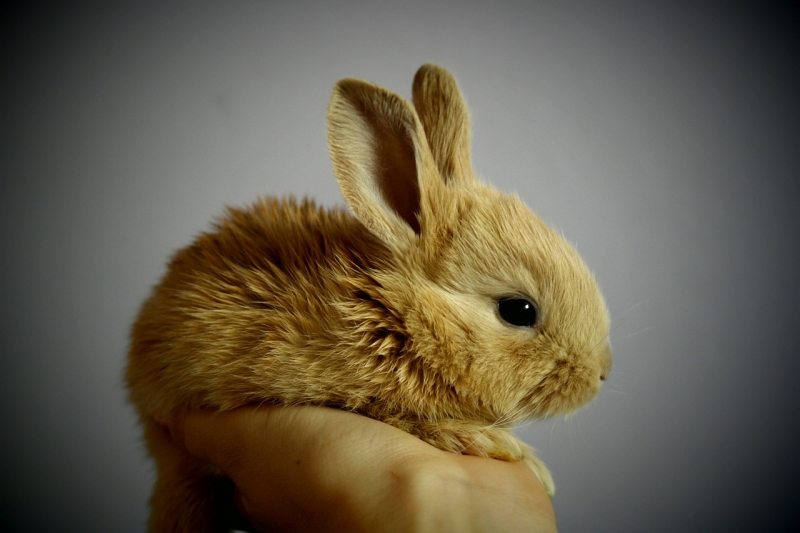Rabbits
Rabbits are fast gaining popularity as easy-care pets, though I don't think they'll ever be as popular as they are in the UK owing to the fact most people here have a decent backyard which allows a dog. But for those with minimal yard space, or no yard, they can be rewarding pets; but they do need proper husbandry or behavioural issues can arise such as spraying, chewing and aggression.
Rabbits need to be socialised as youngsters, much the same as puppies and kittens do, as this will reduce or eliminate fear when being handled, get them used to different situations, and generally make for a more relaxed rabbit. Rabbits can also be trained to use litter trays and dog/cat flaps easily which makes life easier! They also enjoy chewing on cardboard toys, or shredding telephone directories!
Probably one of the biggest components of rabbit husbandry is diet. Commercial pellets are generally too low in fibre, and too high in fat, protein and carbohydrates. Rabbits should subsist on nearly exclusively fresh grass, or good quality grass hay - the fibre content in this is important for stimulating gut motility (low fibre can cause an inactive gut which can be fatal), and the silica in the grass helps to erode the teeth (which constantly grow). If the teeth are not worn down they can overgrow causing pain and discomfort, abscesses and eventually an inability to actually eat. Free ranging on pellets leads to obesity (a huge problem in pet rabbits), calcium deficiency and gut issues, and conversely too much lucerne can lead to urinary problems owing to the high calcium and protein content. Fibre is a rabbits' best friend. In the wild they eat grass and flowers and it's that simple! Fruit and vegies can be sugary and should only be given as a sometimes treat. Water is best given from a dripper bottle to prevent repeatedly wetting the dewlap and causing skin disease.
Proper housing is important as well - it must be protected from the elements with room to move, as well as ventilated (to prevent respiratory disease). The box should be elevated and the grazing/play areas should have hidey, or bolt-holes where rabbits can run and hide if startled. Bedding should be wood shavings, hay or straw.
Rabbits sexually mature at about 4-8 mths of age, and desexing should be undertaken to reduce aggression in both does and bucks (bucks can inflict serious injuries on one another), to reduce unwanted litters, to reduce spraying and territorial aggression in bucks, and to reduce the incidence of uterine tumours in does (50-80% of intact does >4yrs old will develop one). The best pairing is a desexed buck and a desexed doe.
Vaccination is also important. A myxomatosis vaccine doesn't exist in Australia but a Calicivirus (viral haemorrhagic diarrhoea) vaccine does and is given as two boosters as youngsters, then yearly injections.

